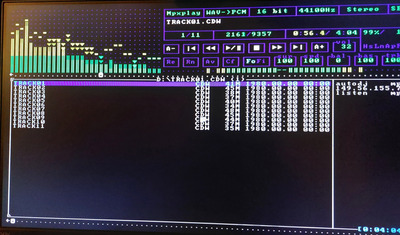First post, by ltning
- Rank
- Member
Hi!
Like others, I'm looking for a good CD player for DOS, but I have a special "request": It sould not be playing the CD audio using the drive's own playback functions, but rather read the digital audio data and pass it to the sound card as raw digital data.
Reason? All my CD-ROM/RW/whatever drives have *hideous* amounts of noise on their audio outputs, no matter which sound card I plug them into. And some sound cards make matters even worse by having noisy inputs of their own.
Is there such a thing?
I remember I had a CD player application for OS/2 back in the day which did this - but I'd love to have the same in plain DOS.
I thought Cubic Player did this, but my memory is - as always - rotten.
/Eirik
EDIT: I'm after a player that will forklift the digital data to the playback software - over the IDE cable, not via S/PDIF or other digital audio outputs..
The Floppy Museum - on a floppy, on a 286: http://floppy.museum
286-24/4MB/ET4kW32/GUS+SBPro2
386DX-40/20MB/CL5434 ISA/GUSExtreme
486BL-100/32MB/ET4kW32p VLB/GUSPnP/AWELegacy
~ love over gold ~
